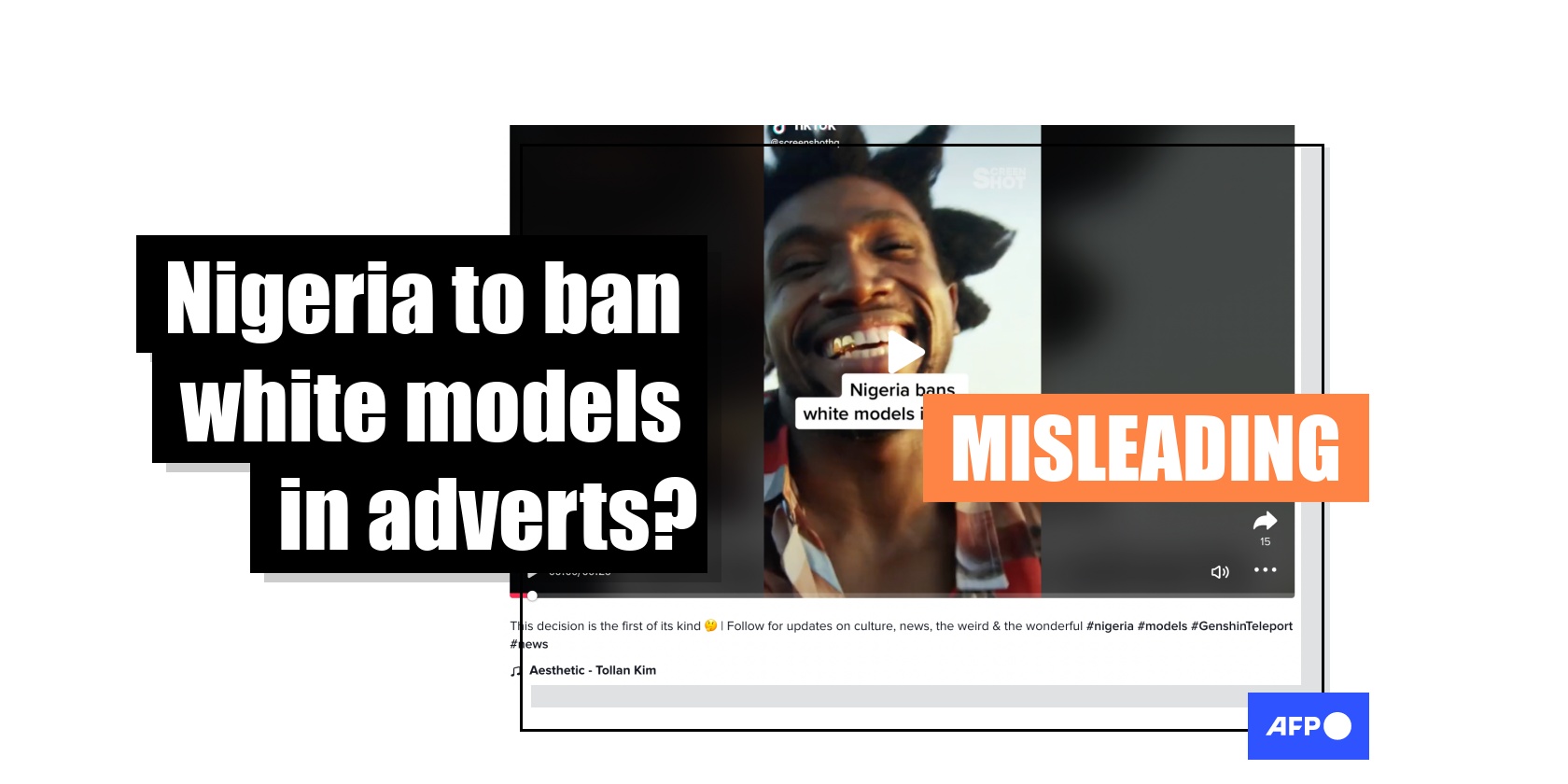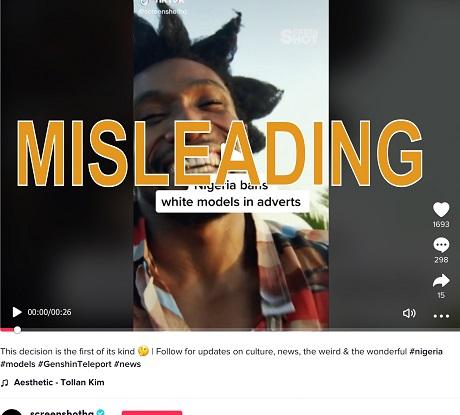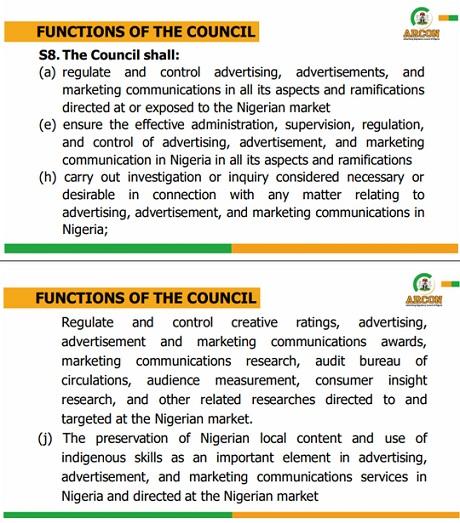
Nigerian law will prohibit all foreigners appearing in adverts, not specifically white models
- This article is more than three years old.
- Published on September 20, 2022 at 12:40
- 3 min read
- By Tonye BAKARE, AFP Nigeria
“Nigeria bans white models in adverts,” reads the caption in a TikTok video shared on August 31, 2022.

The clip, which has been viewed more than 18,000 times, features snapshots from adverts for Guinness, Coca Cola and celebrities such as Nigerian comedian Bright Okpocha, American actor Leonardo di Caprio, and reality TV stars Kendall Jenner and Kim Kardashian.
The footage also displays a copy of an official announcement from the Advertising Regulatory Council of Nigeria (ARCON) about its new ban.
Similar claims were shared on Facebook, in other TikTok videos, and on Twitter.
Advertising and voice-overs in Nigeria have frequently featured foreign models and actors. Nigeria had already implemented a tariff of 100,000 naira, or about $240, for every foreign model used in an advertisement. That tariff was then increased to 500,000 naira (about $1,169) per advertising concept in 2017. Each advert produced outside the country attracts the same charge.
But the claim that the country has moved to ban white models being used in local adverts is misleading.
Ban on foreign models
Using a keyword search, we found the official announcement by ARCON posted on the verified Twitter account of the Federal Ministry of Information and Culture on August 23, 2022.
The ministry explained in the tweet that the ban affects the “use of Foreign Models and Voice-Over Artists on the Nigerian Advertising Medium/Media.”
ARCON had issued the same statement and a similar caption on its own Twitter account the day before.
BAN ON THE USE OF FOREIGN MODELS AND VOICE-OVER ARTISTS ON THE NIGERIAN ADVERTISING MEDIUM/MEDIA#arconcares#advertisingregulator#integratedmarketingcommunicationspic.twitter.com/OH1yMLBxhj
— ARCON (@arconadvert) August 22, 2022
According to the ARCON Act of 2022 mentioned in the statement, the Council has the legal capacity to “regulate and control advertising, advertisements, and marketing communications in all its aspects and ramifications directed at or exposed to the Nigerian market.”

Olalekan Fadolapo, the director-general of ARCON, said in the statement announcing the ban that it was aimed at “developing local talent, inclusive economic growth, and the need to take necessary steps and actions aimed at growing the Nigerian advertising agency.”
Specifically, he explained the ban on foreign models is for advertisements “targeted or exposed on the Nigerian advertising space.” This includes “all advertisements, advertising, and marketing communications materials.”
The statement does not specify an ethnic group or nationality encompassed by the new regulations.
In an interview with US broadcaster National Public Radio, the founder of a Nigerian voiceover talent firm, Tolulope Kolade, said: “We, the local talent, we best express the realities of our locality.”
He however acknowledged that there could be “ripple effects in terms of the international markets” making similar policy decisions.
Speaking to The Times, the head of the Association of Advertising Agencies in Nigeria, Steve Babaeko, said the decision aligned with a “new sense of pride emerging” in Nigeria that encourages the use of local talent.
Nigeria’s advertising industry is one the largest in Africa, with an estimated $490 million spent in 2020. A 2017-2021 analysis conducted by PricewaterhouseCoopers projected Nigeria as the fastest-growing entertainment and media market in the world.
However, the South African media market is still worth significantly more than the Nigerian market at $2.6 billion.
Erin Flanagan contributed to this article.
Copyright © AFP 2017-2026. Any commercial use of this content requires a subscription. Click here to find out more.
Is there content that you would like AFP to fact-check? Get in touch.
Contact us
